It’s typical for a pool pump motor to make noises. However, a squealing motor is an early indication that the bearings are failing. In this article, we discuss how to find your replacement pool pump motor bearings using your motor part or catalog number.
For pool owners, replacing motor bearings is two-fold. First, you need to decide if you want to replace the bearings or replace the entire motor. Next, you have to determine how to find your replacement motor bearings.
This is where INYO steps in.
How To Identify Your Motor
Spoiler alert: You cannot determine which bearings you need without first identifying the part or catalog number on your motor.
Although identifying the part number on your motor should be straight-forward, sometimes, it can be tricky. Here is a quick video of Matt and Rob explaining how to locate the part number off of your motor.
What Does Your Motor Label Look Like?
If you have watched our video and realized that your motor label looks a little different than the one we have shown, don’t worry. Manufacturers change the layout and overall design of the motor labels to fit their preferences.
Below are four different examples of how your motor label might look. Notice how they list the part, model, and/or catalog number on each label. You can use the model number, catalog number, or the part number to cross-reference your replacement bearings.
When the label clearly lists the cat number, using the chart to find your bearings is easy. However, labels that only list part and model numbers require more care. In the event that your label only lists the part number in the 9-digit format X-XXXXXX-XX, only use the middle six digits.
Example: 8-164300-40
In this example, you’d simply use “164300” as the motor part number.
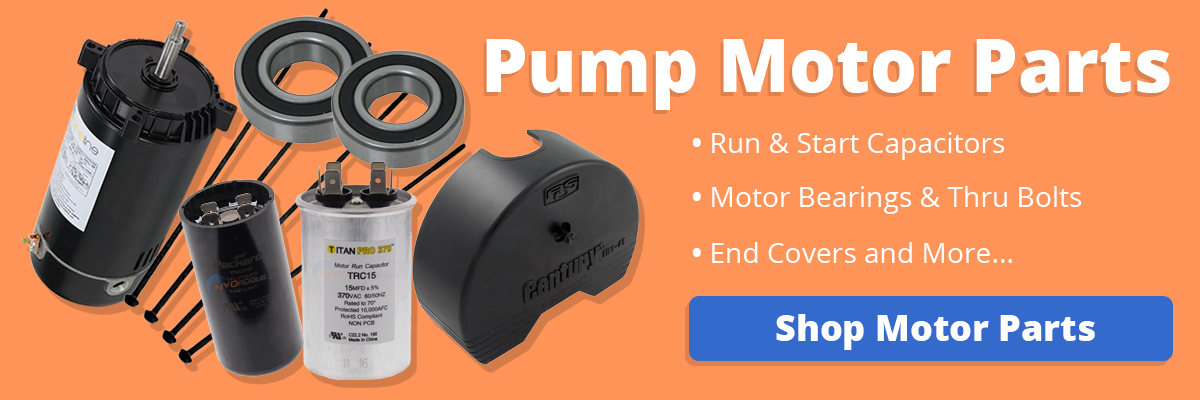
How To Find Your Replacement Motor Bearings
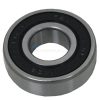 Now that you have your motor’s part number, the next step is to use it to find your bearings. To help with this, we have created a PDF spreadsheet that not only lists the bearings for various motors, but also the capacitor, board, and fan as well.
Now that you have your motor’s part number, the next step is to use it to find your bearings. To help with this, we have created a PDF spreadsheet that not only lists the bearings for various motors, but also the capacitor, board, and fan as well.
First, locate the correct part or catalog number listed on your motor label. Next, find the same exact part number in the PDF graph. Once you have located your motor number in the chart, read across the row to find the part number for the bearings. We have listed the bearings in the two columns after the motor.
Some motors take two different bearings while others use the same bearing twice. Each motor varies.
CLICK HERE to find your replacement motor bearings.
We Didn’t List Your Motor or Bearings?
If we didn’t list your motor or bearings, there’s a good reason- we just don’t know. We’ve been compiling this list for some time now and will continue to do so as we receive information from manufacturers and vendors. If you are in search of replacement bearings and need help locating the correct replacement, we recommend giving Century a call. If it is one of their motors, they should have that information readily available.
The last option you have is to replace the entire motor. Depending on how old the motor is, this might be a more realistic solution. In that case, make sure you replace your shaft seal to avoid any premature leaking.

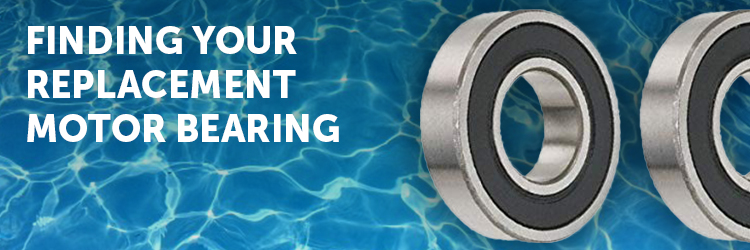
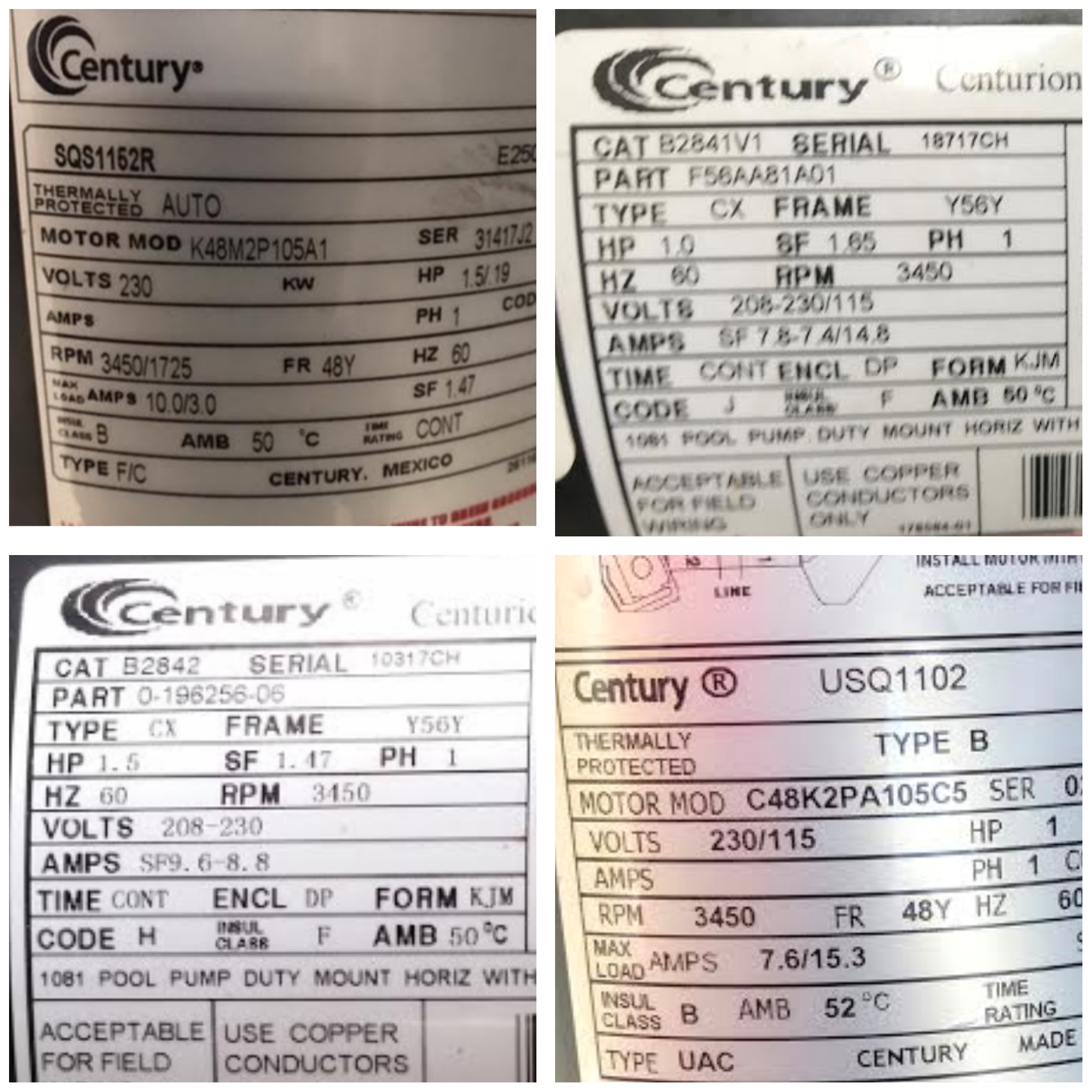
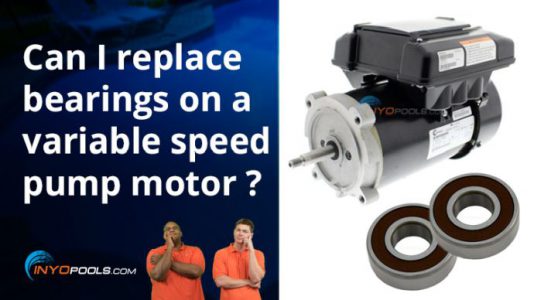
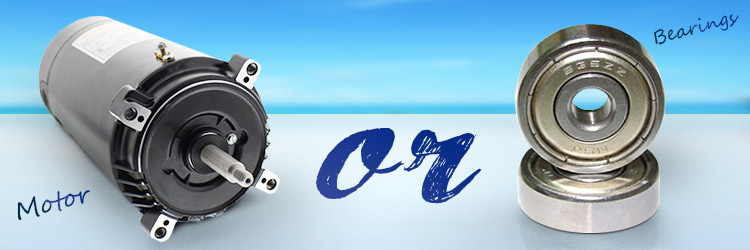
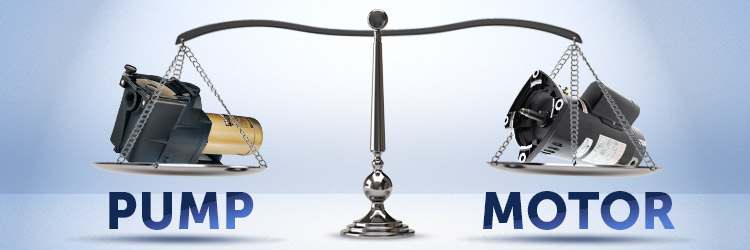
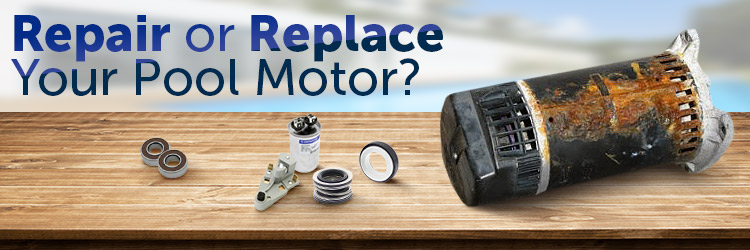






Hi, I have a Century Pool Pump. My CAT is B2840V1. I am trying to buy a replacement for my bearing or if it comes with a kit, that is even better.
I’m looking for bearings for a Centurion (for PAC Fab) 2Hp motor. Best I can read from the label is 168454-25 Y56Y 3450RPM single speed 115V motor.
There should be a number before the “168454-25”; either a 7, 8, or 10. What is that number? It will help determine which specific motor you have.
Trying to find info on bearings for a Dayton Motor Pool Pump 9K588.
I’m not sure which bearings the Dayton brand uses for this motor, but Century equivalent motor the UST1072 uses two 604005-001 bearings.
Just replaced the bearings and starting capacitor in my pump motor. Motor is a Century Centurion by A.O. Smith, 2.0 HP Part 7- 193994 . Front bearing (pump side) is a 6304 2RS and the back bearing is a 6203 2RS. These are standard bearing and the 2RS stands for 2 Rubber Seals. The starting cap is a 50.0 uF, 370 VAC.
Great work, Jerry.
From Hackensack to Egg Harbor, even the Newest of Jersians should praise your name.
I am looking at options for the differentiation between the “suffix” of the bearing size.
My Pump is an APEX eco aqua pro 2.5hp up-rated 2 speed.
it has been verified by reading the writing on the bearings themselves
Front bearing is 6304 DU
Rear Bearing is 6203 2RS
is “contact” versus “non-contact” better for these replacements?
I am really leaning to the suffix “ZZ” for my choice as apposed to the direct replacement “2RS”
however, the “6203/VA201” may be able to handle the “heat” better.
Googling, I find the following types for 6203 bearings:
6 = metric sized, single row, deep groove
2 = light duty (i.e, 40mm OD, 12mm thick) <== I think I can go larger
03 = 17 mm bore diameter <== this is a critical dimension
These seem to be the designations I can decipher so far:
D = molded Buna-N rubber lip seal with a steel insert which provides
maximum protection against contamination; however, the high pressure of
the lip seal itself results in greatly increased torque and friction
losses that can cause heat build-up in higher speed applications. The
seal material itself is rated to a maximum of 250 °F
S = same as D except it's non contact
DD = same as D but double shielded
M = brass cage
V = single, contact, nitrile rubber seal (keeps fluids out)
Z = single, staked, non-contact shield of 300 series stainless steel.
LL = ? seems to be the same as 2RS ?
NR = snap ring and groove
RS = single nitrile rubber seal
TS = glass reinforced teflon giving good contamination protection
VV = double non-contact seal
ZS = same as ZZ but retained by a snap wire
TTS = same as TS, but double shielded
ZZS = same as ZS but double shielded
ZZ = double, staked, non-contact, 300 series stainless steel shields
ZZA = removable shield
2RS = double nitrile rubber seals
DDU = double contact seals (apparently similar to 2RS)
Bearings are easily replaced…..the motor is not toast. I have replaced 4 sets in my pool motor in the last 8 years and its fine.
Have you tried figuring out why you have to keep replacing the bearings at regular intervals?
“Easily replaced” is a very subjective statement. Pool owners have varying skill levels, and most people do not have a bearing puller or vice just laying around
You are correct that not everyone has the skill to replace motor bearings, but there are several good videos on YouTube that tell you exactly how to do it. Many people have a vise. And every Auto Zone or Advance Auto store will loan you a bearing puller.
Good to know about the bearing puller rental, I was unaware of that service. But I am not sure about the “many people own a vise” statement; I know a lot more people with vices than vises.
could it be that the rotor is badly unbalanced? Are all 4 screws that hold the motor together properly aligned? if they are off this can cause uneven stress on the bearings
Not on your bearing list …
I contacted the manufacturer for bearing information on my STS1072RV1 motor. The reply was “This motor takes a 6304 and 6203 bearing. Both of them are double sealed.”
Just in case someone stumbles across this, you can find these bearings ehre; 304 Ntn-6304-ll (6304) & 6203-625 – Double Sealed
My new bearings came this morning. 2 hours later, and my pool pump motor is quiet and efficient again. Not a piece of cake . . . you need some tools like an automotive bearing puller. And you need patience to get the motor ends aligned with each other so the long bolts will go through their holes in the field wiring steel parts. But it’s really straightforward.
My motor 1-1/2 hp inground pool motor is 5 years old. The paint isn’t burned from it running hot. But the bearings were whining loudly. Now, silent. I hope to get 5 more years of service before replacing them again or the motor if it becomes necessary. Total cost: Less than $10.
Motor bearings are replaced all the time. Worst case, you’ll need to buy a new motor anyway.
I’m a retired veteran living only on Social Security Disability. I can’t afford a brand new pool pump. I have to try and fix it myself.
Dont waste your time replacing bearings. Youll be pissed ! Buy a new motor. If the bearings have gone bad , motor is toast.
If the bearings have gone bad, then you have bad bearings, and can replace them,
Completely incorrect. I wish I could report this comment.
Terrible advice! Bearings are relatively easy to replace, and MUCH cheaper than replacing the motor.
The term “relatively easy” is a subjective term depending on the person’s experience. For a person who can break down a carburetor, replacing the bearing in a pump motor would be a breeze; but for someone just beginning their DIY-er journey, it could be quite the chore.